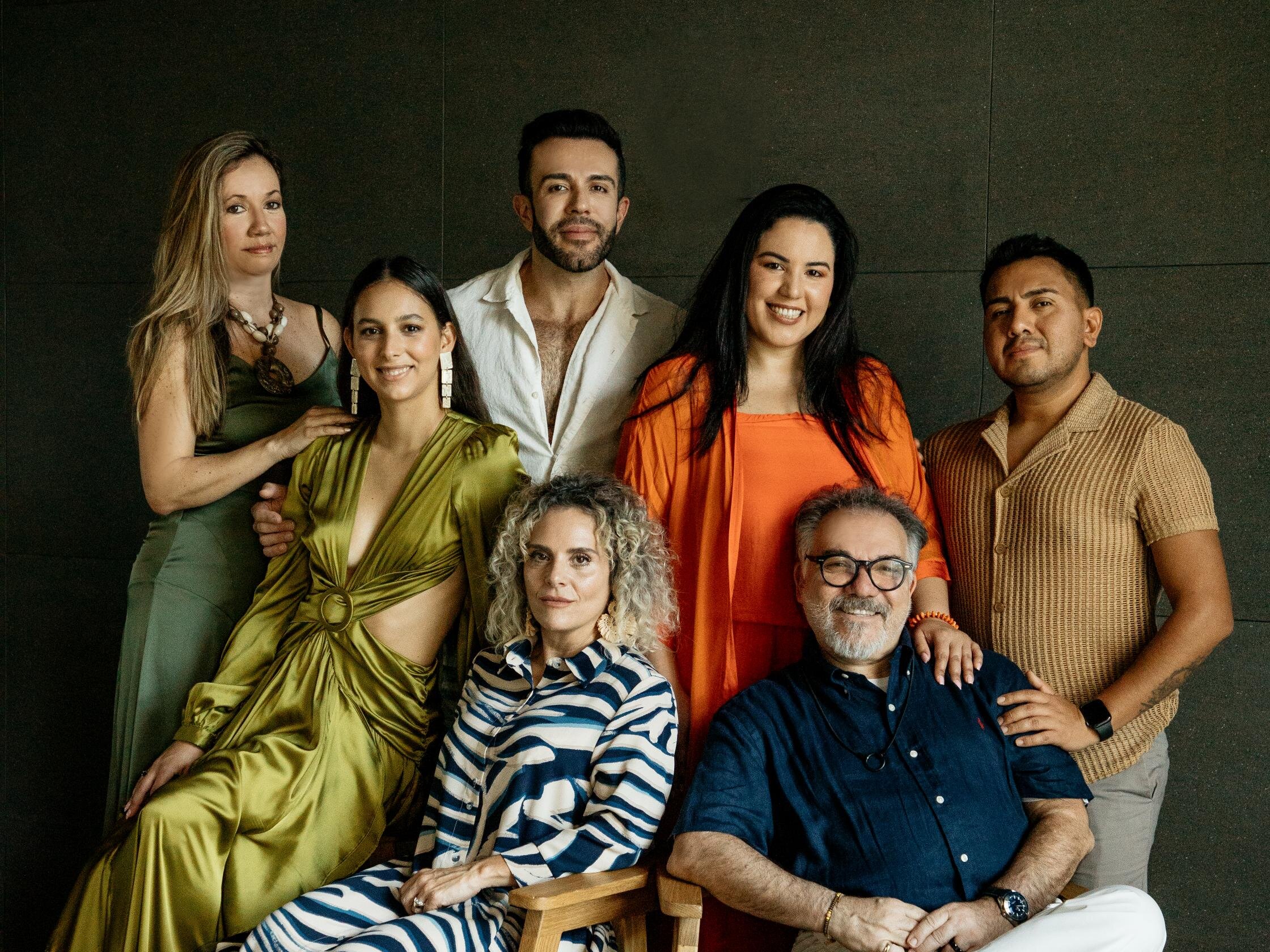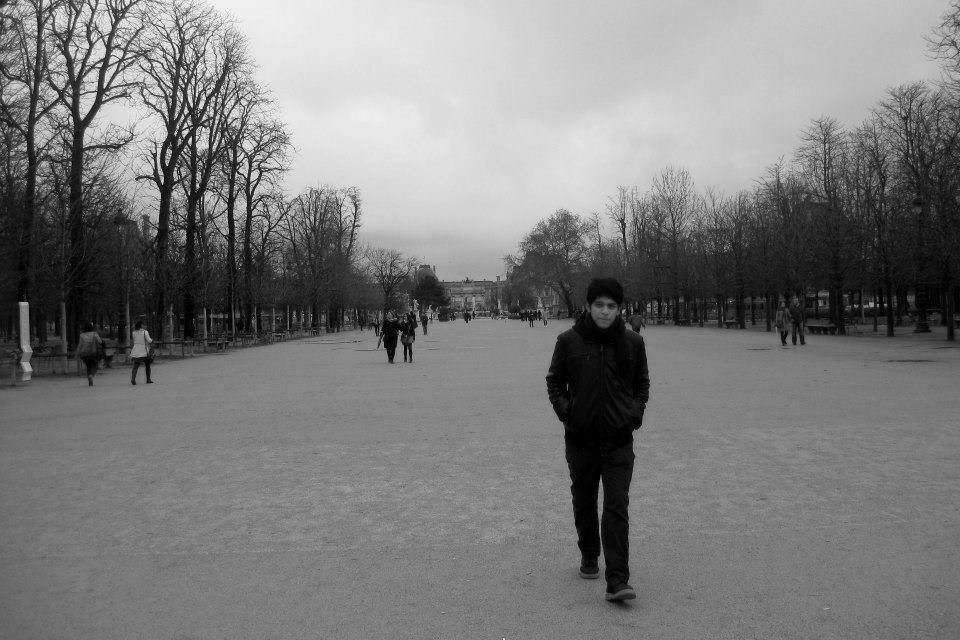We are thrilled to share this exclusive interview with author and screenwriter Raciel Rivas on the cusp of his short film’s debut and the release of his recent book. Read on to discover the world of this fascinating philosopher and writer!
You are passionate about philosophy. What first drew you into philosophy?
I must confess that I have always been equally passionate about music. At the moment I began to study composition in the Faculty of Music at UNAM, I felt entranced by the writings of Albert Camus. I didn’t know which passion to choose! I don’t know which moments lead you to make a change, but intuition and social circumstances, like the war in the Middle East, the coups d’etat, led me back to the French philosophers of the sixties like Camus himself, Simone de Beauvoir, Jean Paul Sartre, Foucault. The best part was being able to socialize and share similar opinions or dissent in debates with peers; I found a home, in which, to this day many provocative conversations occur.
Talking about philosophy, what was it liking working with famous Argentine-Mexican philosopher, Enrique Dussel?
Dr. Enrique Dussel is a full-time thinker; I don’t remember a moment when he and I were not reflecting on the current circumstances: the Latin American economy, the local economy, the political circumstances of globalization. His demand for excellence was a challenge and at the time, he was being appointed acting director of the Autonomous University of Mexico City. I want to highlight and thank the great academic Jorge Alberto Reyes López for his support and making this experience possible for me. Those three years were very constructive in a personal sense: his discipline and efforts to reconcile theory and practice are characteristics I still see in myself. Unlike what many people think, Enrique Dussel is a great politician due to his inexhaustible social praxis.

Tell us a little about your recent book. What was the inspiration behind your writing?
More than inspiration was a process of re-structuring the work of a oaxacan anthropologist, Julia Astrid Suárez. Being a native of Tehuantepec and studying for a few years her cultural and political history, she invited me to imagine the character Juana C. Romero from a unique point of view. For several decades, the character has been reduced to almost nothing next to Porfirio Diaz. It’s true; there were almost no publications that time about women. However, the information collected by the anthropologist, through original archives from the nineteenth century, show the political and social importance of this businesswoman and diplomat. It was interesting to build the complexity of a political diplomat that was reduced to a lover by modern historians (particularly since Porfirio Diaz never confirmed that rumor.) To position Juana C. Romero in a different historical place was one of the greatest challenges and required a great deal of both inspiration and precision in terms of dates, places, and characters in the legacy of this great woman.
How did you feel about the recent publication? What was it like working with Elena Poniatowska?
Writing is always a disturbing process. Although it’s possible to finish a book, deep down there is never enough. Writing and time are often indirectly proportional, the more time passes, the farther you feel from finished. There is, therefore, an irreparable paradox in writing. At the end, there is the book: the result of duty, publication and dissemination of information, but, in turn, the beginning of a strange sense of longing to write more.
The teacher Elena Poniatowska aptly perceived this paradox, reading the book for the first time. “Is this everything?” She asked about the book. It seemed to answer, “not quite”; so we added more information to the book. At the end, she read it again and delved deeper into the unheard contributions of Juana C. Romero. It was her identification with the character (Elena Poniatowska has a special appreciation for the Isthmus of Tehuantepec and its women) that led her, after a critical dialogue, to write the prologue. I must thank, without doubt, the very crucial guide, philosopher Fernando Alonso, who introduced Elena Poniatowska to our project.

You were also recently involved in the creation of the short film, Los Dias Subterraneos. What was the inspiration behind your screenplay?
Indeed, recently I turned my writing towards the screen. A few years ago, I met the artist Diego Meves in the gallery of Georgina Vega. Georgina invited me to write a text about Meves’s art exhibition. When I saw his work, I was fascinated by the emotional energy in Meves works. From there came a great friendship, we talked a lot about literature – Meves is passionate about poetry – until one day he proposed we make a film. By that time, Diego Meves had gone through a great series of experiences; I was not surprised by the his inexhaustible activity and the surrealistic quality of his thoughts. Meves is an irremediable nomad. In the end, I shared what I sensed: his days were becoming subterranean rivers of memories that he could not grasp by the inexhaustible movement. We got to work with a great team from several different countries. Within a few months we were all in the Yucatan filming. Subterranean days: the memory of what many want to flee, the explosion of memories, the memory of the skin of others, things that no one can escape.







1 thought on “Interview with Raciel Rivas, Author and Screenwriter”
Comments are closed.